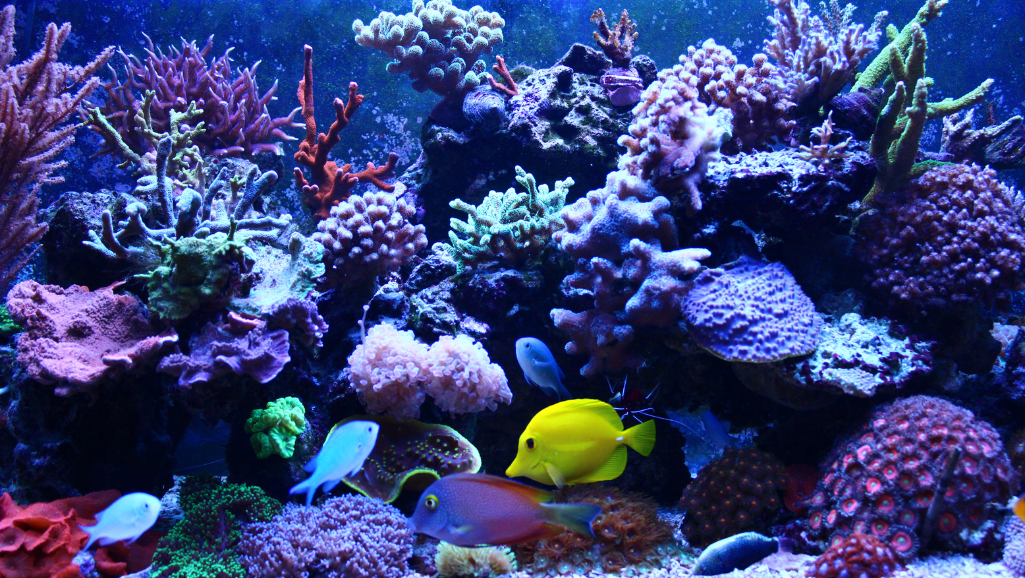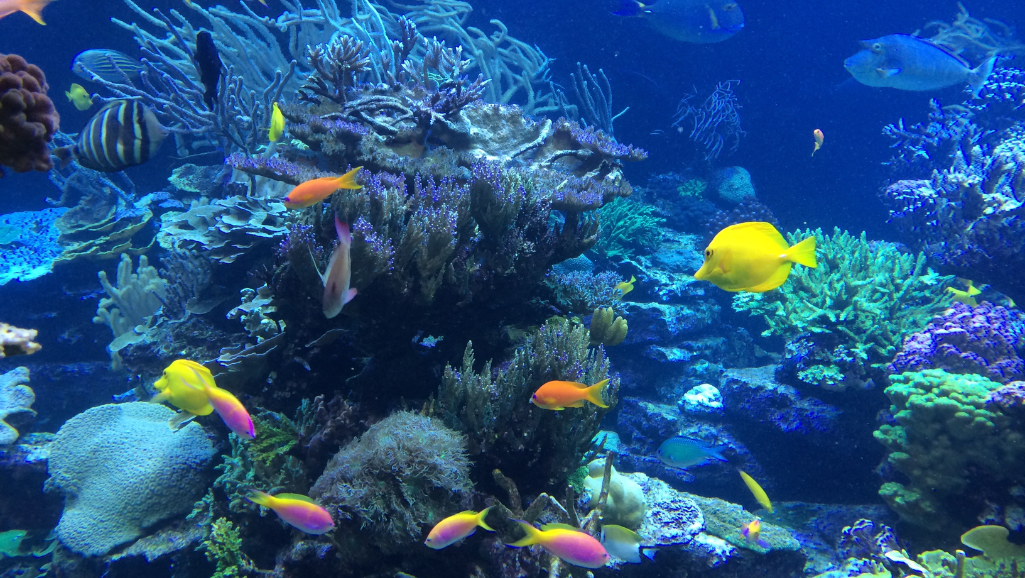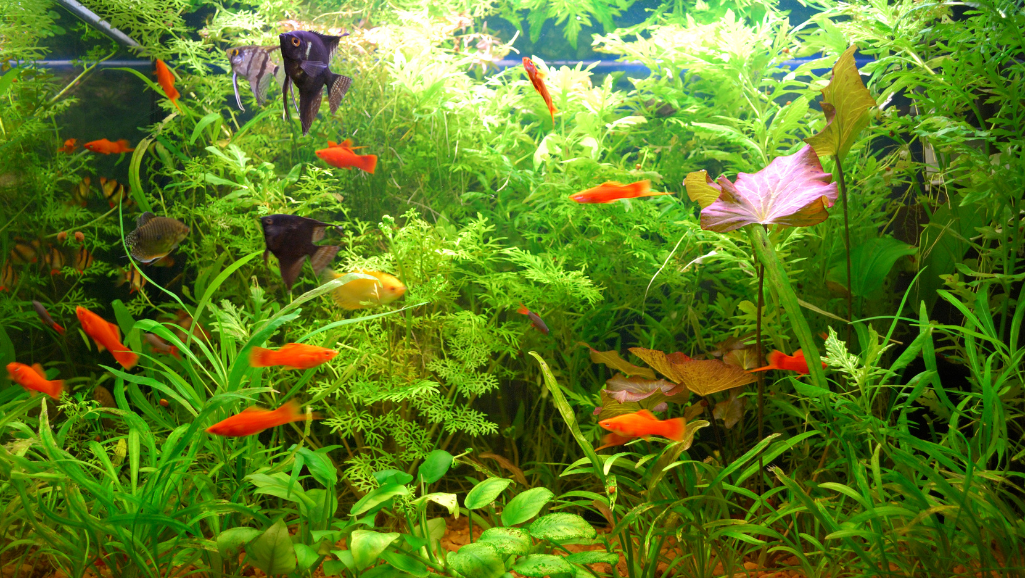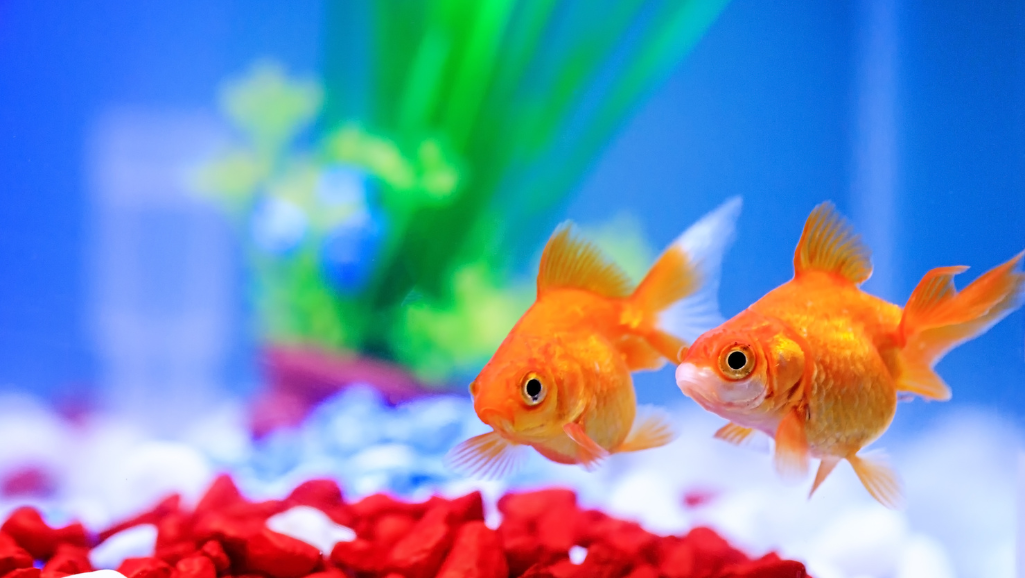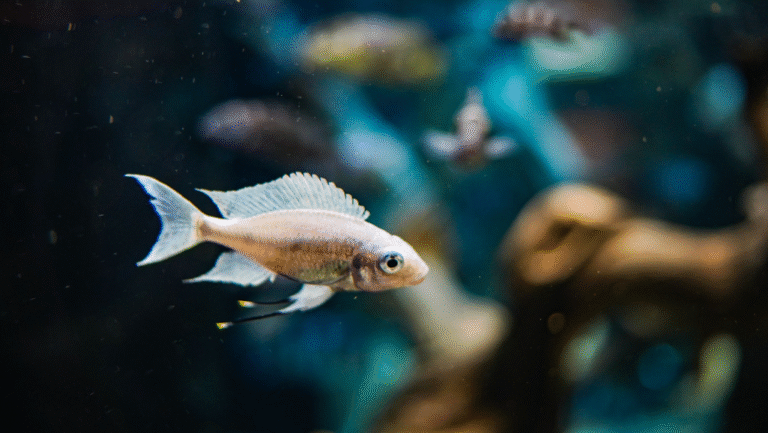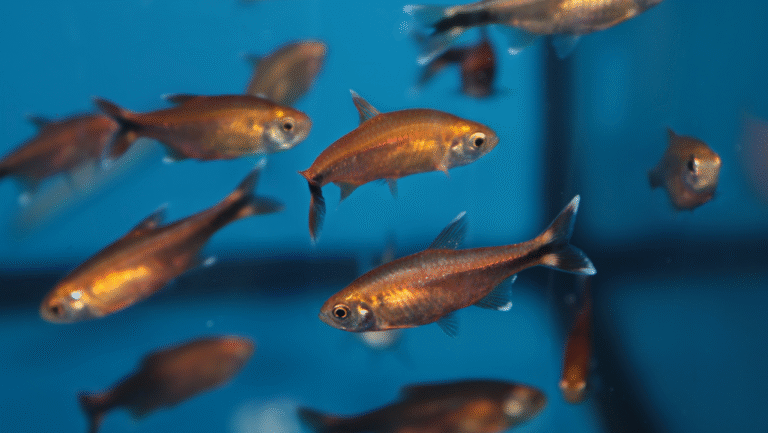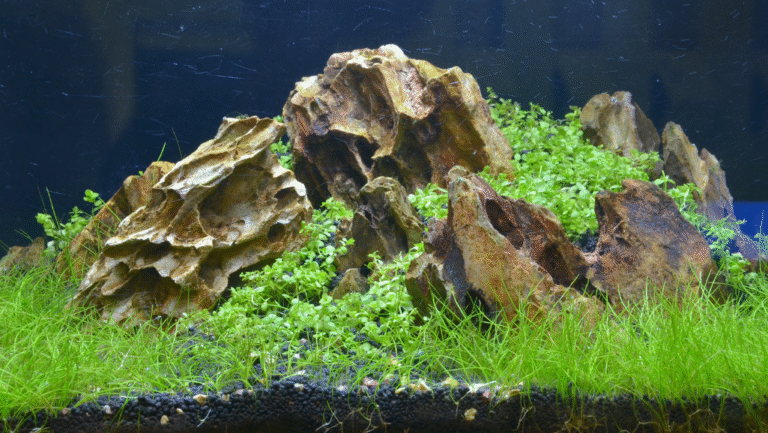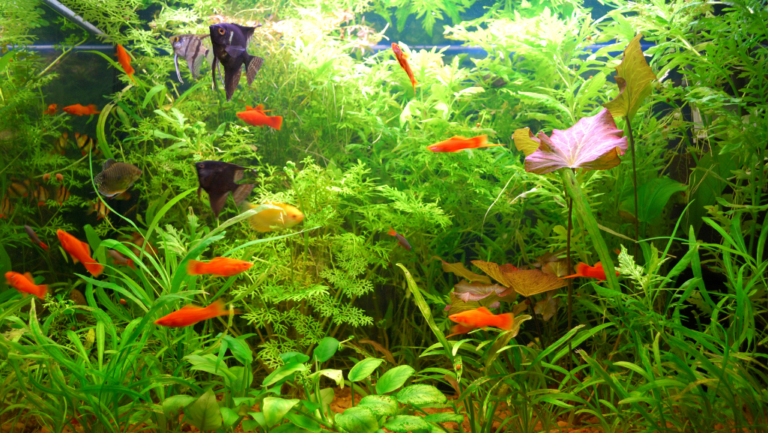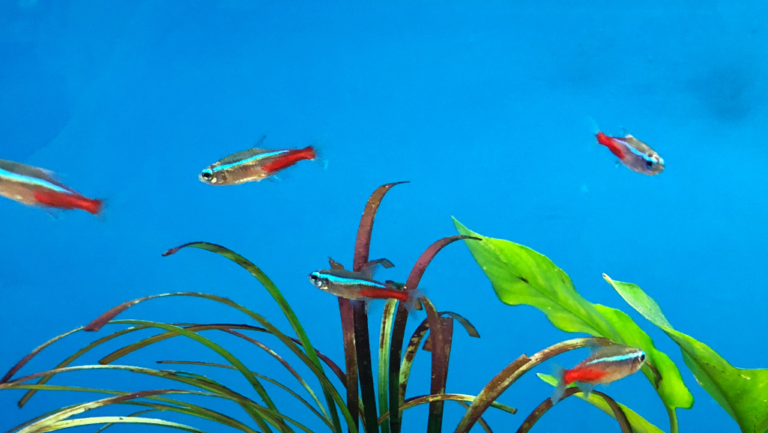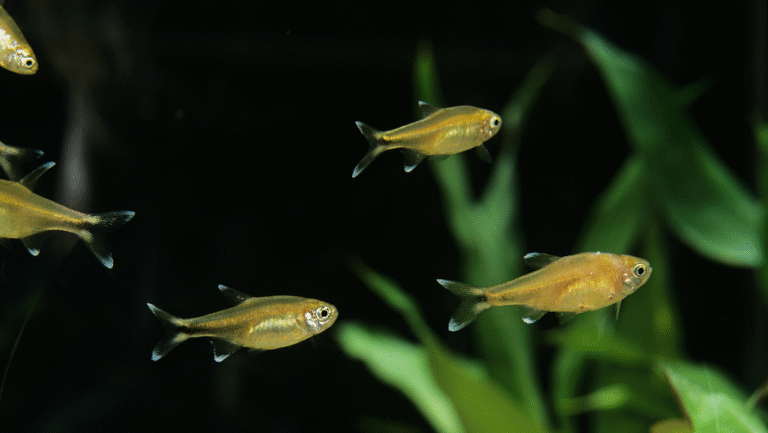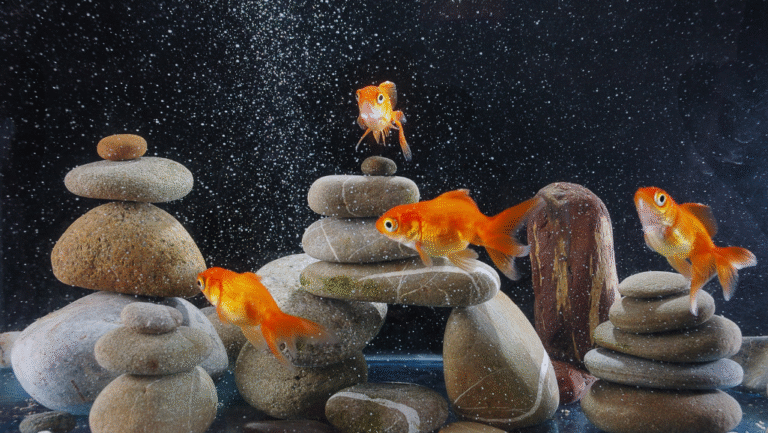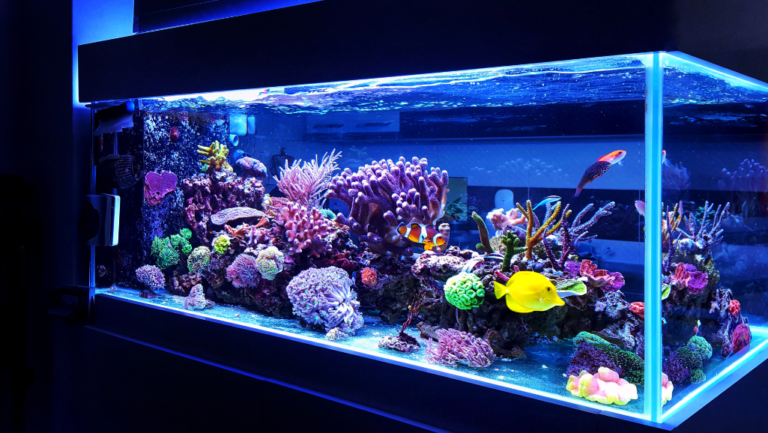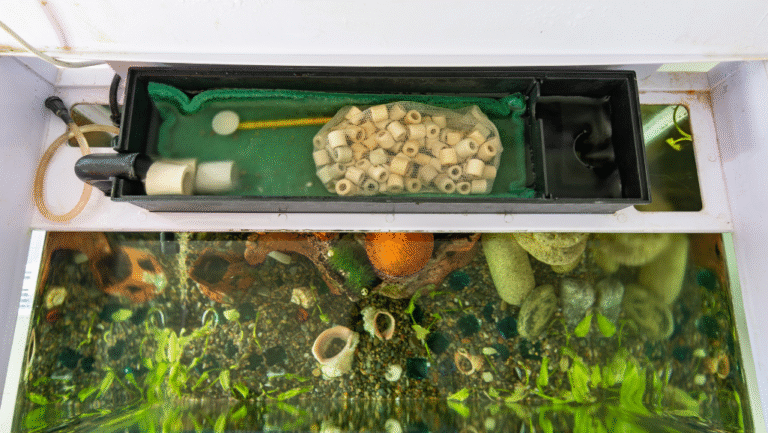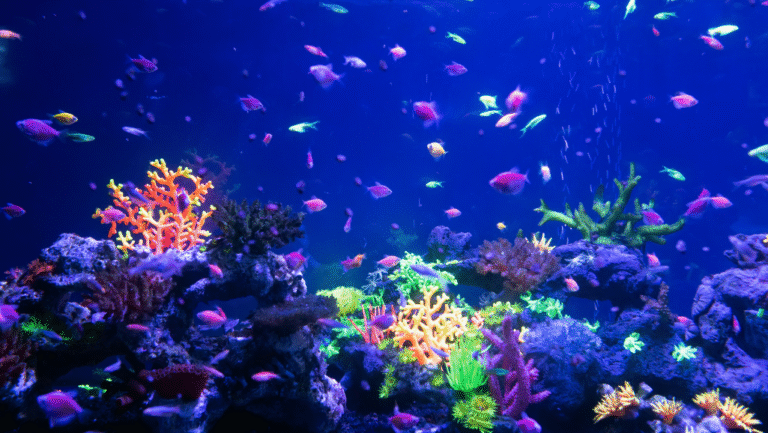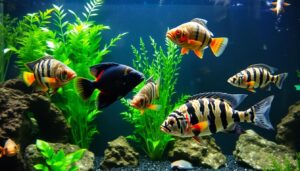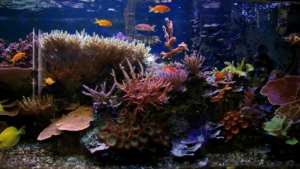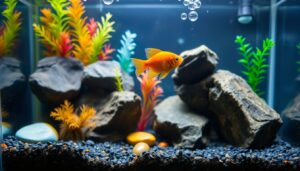Ich, also known as white spot disease, is a common and contagious parasitic infection. It affects many freshwater and saltwater aquarium fish. This disease is caused by Ichthyophthirius multifiliis and can spread quickly, leading to fish losses if not treated.
As an aquarium hobbyist, having a reliable ich cure for fish is key. It helps treat outbreaks fast and stops the parasite’s spread.
Effective aquarium fish medication is vital for treating ich. With the right treatment, you can quickly get rid of parasites. This article will guide you on understanding ich, identifying infestations, and treating them. It also covers preventive measures to keep your aquarium safe from future outbreaks.
Key Takeaways
- Ich is a highly contagious parasitic disease that affects freshwater and saltwater fish
- Prompt treatment with effective ich cure for fish is critical to prevent widespread infection
- Identifying symptoms early allows for timely intervention and better treatment outcomes
- Various fish disease treatment options are available, including medications, natural remedies, and environmental adjustments
- Implementing preventive measures and maintaining optimal water conditions can reduce the risk of ich outbreaks
What is Ich (Ichthyophthirius multifiliis)?
Ich, also known as white spot disease, is a common parasitic infection in both freshwater and saltwater fish. This protozoan parasite, named Ichthyophthirius multifiliis, can quickly spread in aquariums. It’s important for fish owners to know about its biology and symptoms for effective piscine healthcare.
Understanding the Ich Parasite
The ich parasite is a single-celled organism that attaches to the skin, fins, and gills of fish. As it matures, it forms a white spot on the fish’s body, earning it the name “white spot disease.” It’s highly contagious and can quickly infect other fish in the aquarium if not treated.
Life Cycle of Ich
The ich parasite goes through three stages: trophont, tomont, and theront. The trophont stage is when the parasite is visible as white spots on the fish’s body. After feeding, the trophont detaches and becomes a tomont, which swims freely and reproduces. The offspring, called theronts, then search for new fish hosts to infect, completing the cycle.
Symptoms of Ich Infection
Fish infected with ich may show the following symptoms:
- White spots on the skin, fins, and gills
- Scratching against objects in the aquarium
- Lethargy and loss of appetite
- Rapid breathing or gasping for air
- Clamped fins and hiding behavior
“Early detection and treatment of ich are essential for the survival and well-being of your fish. Regular monitoring and maintaining a healthy aquarium environment are key to preventing outbreaks.”
By understanding ich’s biology and symptoms, fish owners can take steps to protect their pets. Using antibacterial for aquariums and antifungal fish remedies in a complete healthcare routine can help prevent and control ich outbreaks. This ensures a thriving aquarium community.
Common Fish Affected by Ich
Ich is a common parasitic disease that can hit many fish species in both freshwater and saltwater tanks. As a tank owner, knowing which fish are most at risk is key. You need to protect them with the right aquatic pet remedies and fish tank disinfectants.
Freshwater Fish
Many favorite freshwater fish can get ich, including:
- Tetras
- Guppies
- Barbs
- Danios
- Cichlids
These fish can fall ill from ich fast if not treated. So, it’s vital to watch their health closely. Use marine life medicines right when you see signs of infection.
Saltwater Fish
Saltwater fish can also get ich, with some species being more at risk:
- Clownfish
- Tangs
- Angelfish
- Butterflyfish
- Damselfish
Quick action with the right aquatic pet remedies is essential. It helps stop ich from spreading among saltwater fish. This keeps your tank healthy.
Impact on Aquarium Settings
Ich can severely harm both freshwater and saltwater tanks if not treated. It can spread fast, infecting many fish and threatening their lives. It also makes it harder to keep the tank’s water stable.
Spotting and treating ich early with effective fish tank disinfectants and marine life medicines is critical. It helps reduce ich’s damage and keeps your fish healthy for a long time.
Identifying Ich Infestation
Spotting ich early is key to treating fish disease and curing ich in fish. As a fish owner, watching your fish closely is vital. Catching ich early helps you treat it quickly and stop it from spreading.
Visual Symptoms to Look For
Look for small white spots on your fish’s skin, fins, and gills. These spots look like salt or sugar grains. As the disease gets worse, more spots will appear, covering more of the fish’s body.
Behavioral Changes in Fish
Ich-infected fish also show changes in how they act. They might swim slowly, not want to eat, and stay away from other fish. You might see them rubbing against things in the tank to feel better.
“Prevention is always better than cure. Regular tank maintenance, proper quarantine procedures, and maintaining optimal water conditions can significantly reduce the risk of ich outbreaks in your aquarium.”
Diagnosing Ich in Tanks
To check if your tank has ich, do a simple test. Use a clean glass slide to scrape off a few spots from an infected fish. Then, look at them under a microscope. Seeing the ich trophonts confirms the problem.
Knowing how to spot ich symptoms and how to test for it helps you act fast. This is important for treating aquaculture therapeutics and curing fish disease. Early action is essential for success.
Treatment Options for Ich
There are many ways to treat ich in your aquarium. These methods can get rid of the parasites and make your fish healthy again. Let’s look at the most common ways to fight ich.
Chemical Treatments and Medications
Chemical treatments and medications are a popular choice for treating ich. These aquarium fish medications have ingredients like malachite green, formalin, or copper sulfate. They are effective against ich parasites. If used right, these treatments can quickly kill the parasites and stop them from spreading.
“I’ve had great success using a combination of malachite green and formalin to treat ich in my freshwater tank. It’s important to follow the dosage instructions carefully and monitor your fish closely during the treatment process.” – Experienced Aquarium Enthuasiast
Natural Remedies
Some people prefer natural remedies to fight ich. Salt baths are a common method. They make the water too salty for ich parasites. Garlic is another natural remedy. It has antibacterial and antifungal properties that help your fish fight off the infection.
Temperature and Salinity Adjustments
Changing the temperature and salinity of your aquarium can also help treat ich. Raising the water temperature to around 86°F (30°C) speeds up the ich parasites’ life cycle. This makes them fall off the fish and become easier to treat. Keeping the right salinity levels also helps prevent ich and keeps your fish healthy.
Choosing the right treatment for ich depends on the severity of the infestation and your fish’s health. Talking to a vet or an experienced aquarium enthusiast can help you decide the best treatment for your aquarium.
Step-by-Step Guide to Treating Ich
When you see ich in your aquarium, act fast. This parasitic disease can spread quickly. To protect your fish, follow a systematic approach and use effective treatments. Here’s a step-by-step guide to treat ich and keep your fish healthy.
Isolating Affected Fish
Start by isolating sick fish in a separate tank. This stops the parasite from spreading. Make sure the quarantine tank’s water conditions are close to the main tank’s. This helps reduce stress on the fish.
Dosage and Application of Treatments
Always follow the instructions for ich treatments. These come in liquids, tablets, or medicated food. Measure the right amount for your tank and the infection’s severity. Consistency is key for effective treatment.
“Ich, also known as white spot disease, is a common parasitic infection that affects both freshwater and saltwater fish. Prompt treatment is essential to prevent the rapid spread of the parasite and protect the health of your aquarium inhabitants.”
Monitoring Progress and Adjusting Treatments
Watch your fish closely during treatment. Look for signs like fewer white spots and more activity. If symptoms don’t improve, talk to a fish health vet. They might suggest changing your treatment plan.
Keep your tanks clean and water quality high. Change water often, check parameters, and use a good fish tank disinfectant. With the right care and treatment, you can cure ich and keep your fish healthy.
Preventing Ich in Aquarium Settings
Keeping your aquarium safe from ich is all about prevention. Healthy water, regular tank care, and careful fish introduction are key. These steps help keep your fish healthy and your tank thriving.
Maintaining Healthy Water Conditions
Keeping water conditions right is a big step against ich. Test your water often to check temperature, pH, and nutrient levels. Using a good test kit and adjusting the water as needed helps prevent ich and other diseases. Also, change about 10-20% of the tank water regularly to keep it clean for your fish.
“An ounce of prevention is worth a pound of cure.” – Benjamin Franklin
Regular Tank Maintenance Tips
Good tank care is also key to avoiding ich. Here are some tips:
- Clean the filter and replace media when needed
- Vacuum the substrate to remove waste
- Trim plants and remove dead parts
- Wash decorations and equipment to avoid waste buildup
Keeping your tank clean reduces the risk of ich and parasites. Cycling your tank properly and adding beneficial bacteria help keep it healthy.
Quarantine Procedures for New Fish
Quarantining new fish is a must to stop ich and diseases. Use a separate tank with the right water and watch the fish for 2-4 weeks. Look for any signs of ich or odd behavior. Use preventive meds or natural treatments in the quarantine tank to keep parasites away.
By following these steps and staying alert, you can lower the chance of ich in your tank. A proactive approach to care and disease prevention is vital for your fish’s health. Using aquaculture therapeutics and ich cure for fish can also help keep your tank thriving.
Importance of Early Detection
Early detection is key when treating ich in aquarium fish. Spotting the disease early boosts your chances of saving your fish. Regular tank checks help catch ich early, allowing for quick action to protect your pets.
Consequences of Untreated Ich
Ignoring ich can harm your fish badly. The parasite weakens their immune system, making them vulnerable to more diseases. Untreated ich can cause serious skin damage, breathing problems, and even death. The sooner you treat, the easier it is to control the outbreak.
The Benefits of Quick Action
Acting fast when ich is suspected is vital for your fish’s health. Quick treatment with the right medication can:
- Lessen the infection’s impact
- Stop ich from spreading to other fish
- Reduce stress and discomfort in affected fish
- Boost the chances of successful treatment
Early treatment with an effective ich cure improves your fish’s chances of recovery.
Case Studies of Successful Treatments
Many have successfully treated ich by acting quickly and using the right treatments. For instance, a fishkeeper saw white spots on their neon tetras and started treatment right away. They used an antibacterial and gradually raised the tank’s temperature. In a week, the ich was gone, and the fish were healthy again.
I couldn’t believe how quickly the ich disappeared once I started treatment. It just goes to show that early detection and swift action can make all the difference.
Learning from others and focusing on early detection can help your fish fight ich and stay healthy in your aquarium.
Choosing the Right Ich Cure
Choosing the right antifungal fish remedy is key for your fish’s health. There are many over-the-counter products out there. It’s important to pick one that fights ich well and is safe for your fish.
Comparing Over-the-Counter Products
When looking at ich treatments, think about a few things:
- What active ingredients it has and how well they fight ich
- If it’s safe for your fish and your tank
- How easy it is to use and follow the instructions
- Any possible bad effects on your fish or tank’s good bacteria
Read the labels and check out what others say about the products. Talking to experts in piscine healthcare can also help a lot.
What to Look For in Treatments
Look for treatments with proven ingredients like malachite green, formalin, or copper sulfate. These have been shown to kill ich at different stages.
“The key to successful ich treatment is choosing a remedy that targets the parasite while minimizing stress on your fish and maintaining a healthy aquarium environment.”
Also, choose treatments that are simple to use and have clear instructions. Some aquatic pet remedies need to be used more than once or need special water changes. Make sure you can follow the treatment plan.
Recommended Brands and Solutions
Many trusted brands make good ich treatments for both fresh and saltwater tanks. Some top picks are:
- API Super Ick Cure
- Seachem ParaGuard
- Hikari Ich-X
- Kordon Rid-Ich Plus
These brands are known for their success in fighting ich. You can find them at pet stores and online. But, always read the instructions and think about your fish and tank’s needs before buying.
Aftercare for Fish Post-Treatment
After treating your fish for ich with a fish tank disinfectant, it’s key to care for them well. Watch your fish closely and keep the water in the tank perfect. This helps them recover fully and stay healthy.
Caring for Fish After Ich Treatment
Watch your fish for stress or infections after treatment. Start feeding them small amounts and increase as they eat more. Adding vitamins to their food can help their immune system.
Keep the water stable and change it often. This keeps the tank clean and free from parasites or toxins.
Long-term Health Monitoring
Keep an eye on your fish’s health even after they seem better. Look for signs of illness like lethargy or loss of appetite. Having good medicines and therapeutics ready is important.
Test the water regularly to make sure it’s right for your fish. Fix any problems quickly to keep your fish healthy.
When to Seek Professional Help
If your fish keep getting sick, it’s time to get help. Talk to an aquatic vet or a fish store expert. They can suggest more treatments or care.
Sometimes, other health issues or stress can make ich worse. A vet or expert can help find and fix these problems.

